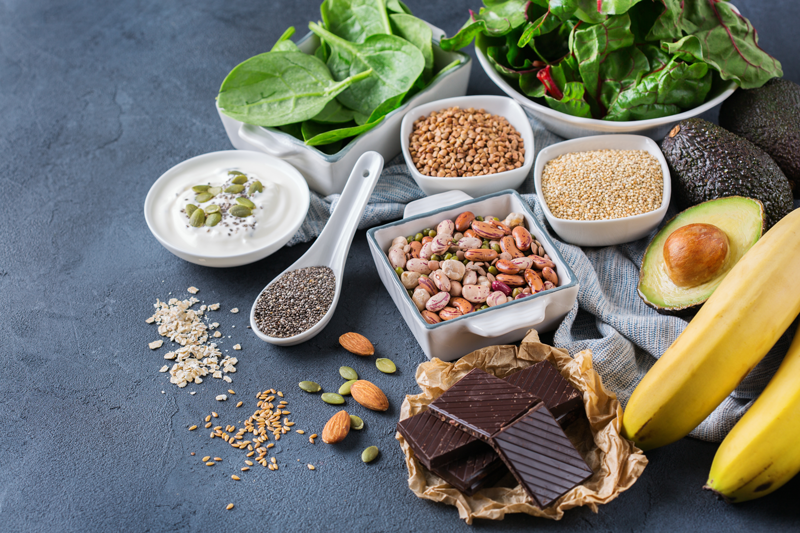Despite Americans consuming more fruit and vegetables now than they did in 1970, the average diet still falls short of the recommendations published in the 2015-2020 Dietary Guidelines for Americans. Too many individuals are still stocking up on processed foods that are filled with additives when a more natural approach to eating can be of great benefit. Unfortunately, many people are still unsure of exactly what the term ‘natural foods’ entails. A basic rule will help you steer clear from any potentially nasty additives: If you can’t pronounce or don’t recognize any of the ingredients listed on any food packaging, stay away from it and seek a more natural alternative or make it yourself from fresh ingredients. The following guidelines will further help you to get all the needed nutrients while following a natural diet.

Vitamins B6, B12 & C
B vitamins, and B6 and B12 in particular, all contribute towards the healthy functioning of your nerves, blood, and immune system. If you lack these vitamins, chances are you may experience impaired memory, breathlessness, fatigue, and depression. Vitamin B6 can be found in bananas, chicken, fish, and nuts while B12 is plentiful in eggs, poultry, fish, red meat, and dairy.
Vitamin C is probably one of the most well-known nutrients around and although a severe deficiency is fairly uncommon, frequent bruising, bleeding gums and weakness may all indicate that you can do with more of it in your diet. If you eat your recommended 5 portions of fruit and vegetables a day, you should never suffer from a deficiency, as Vitamin C can be readily found in citrus fruit, strawberries, broccoli, Brussel sprouts, spinach, tomatoes, and squash. If you battle to eat your 5 portions a day you can make a delicious and healthy natural smoothie by combining organic milk with a couple of your favorite fruits (and even vegetables like kale) for an all-in-one nutritional boost.
Vitamins D & E
Also known as the sunshine vitamin, Vitamin D helps with calcium absorption. A deficiency has been linked to various cancers, type 1 Diabetes, and osteoporosis. The body produces its own supply of the vitamin, although it can also be found in smaller quantities in fatty fish like tuna and salmon as well as milk. Vitamin E functions as an antioxidant and is important for strong immunity and healthy skin and eyes. Good sources of Vitamin E include avocados, a variety of seeds and nuts, and salmon.
Calcium & Magnesium
Calcium is vital for bone health and is essential in the fight against osteoporosis. While 1000 mg of calcium is required a day, the body often has a hard time absorbing more than 500 mg at a time so it is best you consume calcium-rich foods such a leafy green, legumes and organic dairy in smaller doses throughout the day.
Magnesium is essential to keep your muscles and nerves functioning properly, maintain strong, healthy bones and control your blood sugar levels. When your magnesium levels are low, you may find yourself experiencing fatigue, muscle cramps, irregular heartbeat and even hypertension. On average, an adult requires about 320 mg of magnesium a day, which you can obtain from munching on natural foods such as dates, almonds, spinach, walnuts, and broccoli.
Zinc & Iron
Zinc plays a fundamental role in supporting our immune systems, especially in winter when the prevalence of colds and flu increases. The RDA for adults is 10mg and can be obtained from a variety of nuts, oysters, and meat including beef and pork. A Healthy adult needs in the region of 18mg of iron a day to prevent anemia, heart palpitations, and fatigue. Good sources of iron are easy to obtain, even when following a natural diet. Red meat, egg yolks, Kale, broccoli, spinach, and legumes are not only high in iron but extremely versatile to incorporate into healthy meals as well.
If you follow these basic guidelines and couple them with your own creative flair and food preferences, you are bound to come up with a delicious and varied meal plan made with nutrient-rich natural ingredients. The initial transition to a natural diet may be difficult at times but you will soon get the knack of it, never to turn back to your additive filled, processed diet again.
